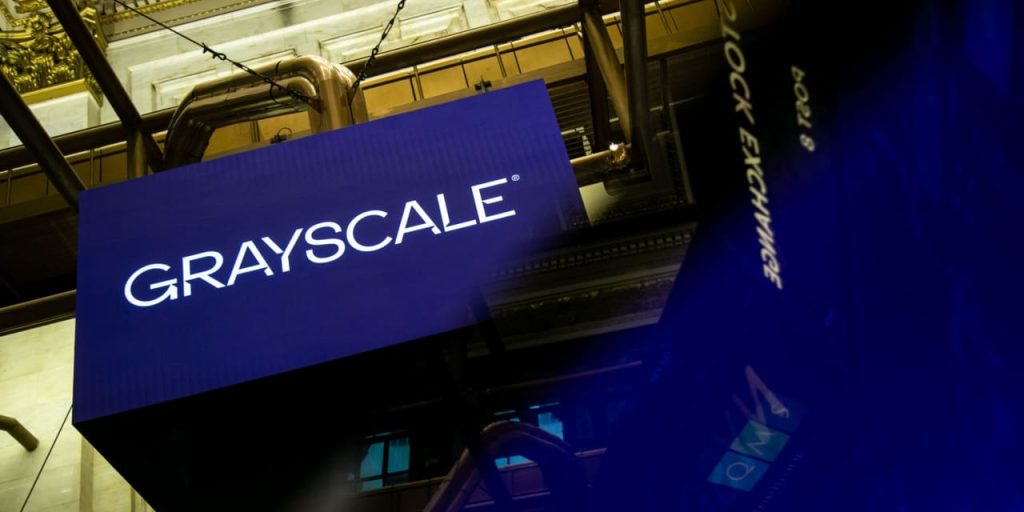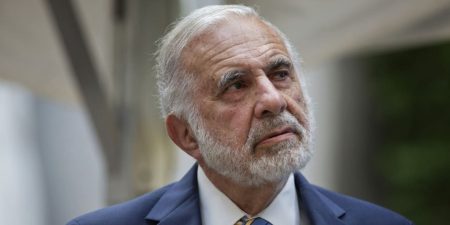The launch of spot Bitcoin exchange-traded funds last month marked an end to one of the biggest cryptocurrency arbitrage trades in the asset class’s short history. But another opportunity is coming up soon.
On May 23, the Securities and Exchange Commission faces a final deadline to approve or deny an application by VanEck to launch an ETF that holds Ether, the second-biggest cryptocurrency, with a total market value of about $316 billion. That’s important to other fund issuers seeking to launch similar funds, including ARK Investment Management and Hashdex.
But it is probably most important to holders of the
Grayscale Ethereum Trust,
which has assets of $7.4 billion.
Right now, the trust trades like a closed-end fund, meaning that its market price can deviate widely from the value of the Ether it holds. On Friday, the fund traded at a 12% discount. If the fund were allowed to convert to an ETF, that discount would close quickly, netting the funds’ investors an $890 million profit.
Investors may be feeling a sense of déjà vu. That is because the situation appears to be an almost exact replay of what happened earlier this year to investors in the
Grayscale Bitcoin Trust,
which is often referred to by its ticker GBTC. In January, the SEC approved applications for spot Bitcoin ETFs, closing the Grayscale Bitcoin Trust’s discount and netting investors billions of dollars.
“Our goal at Grayscale has always been to guide our crypto products through a four-stage life cycle, much like that of GBTC, which culminates in uplisting the product as an ETF on a national exchange,” said a Grayscale spokeswoman in a statement.
Some analysts think the SEC has little choice but to approve the conversion of the Ethereum Trust.
Last year, an appellate court overturned the SEC’s rejection of the conversion of the Bitcoin Trust, arguing that the agency didn’t present a rationale for why it had approved ETFs holding Bitcoin futures while rejecting those that hold spot Bitcoin. The SEC has similarly already approved Ether futures ETFs, such as ProShares Ether Strategy.
“While the SEC has historically frowned upon all crypto ETFs, the commission has limited options following its October 2023 loss against Grayscale regarding GBTC,” wrote analysts for the investment research firm Capstone in a note on Friday. The analysts assigned an 82% probability that the Ethereum Trust can convert by the start of June.
As with the GBTC trade, the Ethereum Trust trade isn’t without risk.
For one, unless they also short Ether, investors will be exposed to the volatility of the cryptocurrency itself between now and May. The SEC could also decide to treat Ether differently than it did Bitcoin. While the agency has said Bitcoin is a commodity, for example, SEC officials have been less clear on whether they believe Ether is a security and what that would mean for potential spot Ether ETFs.
It also ultimately took a lawsuit for the SEC to approve the Bitcoin ETFs, a process that lasted a year. Even then, the Bitcoin ETF approval only proceeded by the skin of its teeth. SEC Chair Gary Gensler sided with Republicans to let it move forward with a 3-to-2 vote.
An SEC spokesperson declined to comment.
The fate of the Ether ETF applications will become more clear over the coming months as the agency gives feedback to applicants. But for now, it is looking like the Grayscale Ethereum Trust might be crypto investors’ next great arbitrage trade.
Write to Joe Light at [email protected]
Read the full article here









